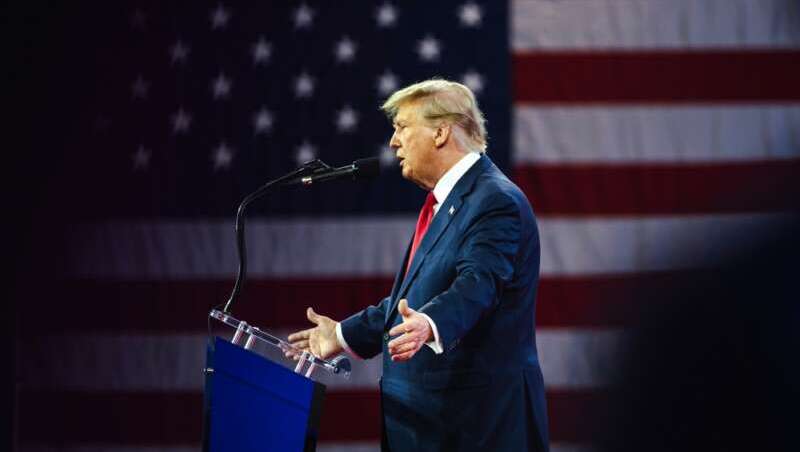
As the Trump administration prepares to take office on Jan. 20, government experts said on Monday that they expect to see an executive order from President-elect Donald Trump related to Schedule F in his first week, and they shared what that means for the Federal workforce.
The policy stems from the Trump administration’s October 2020 executive order that created a new “Schedule F” classification for Federal employees deemed to be in policy-making positions. The order made it easier to hire and fire employees who were put into the proposed Schedule F class.
Ultimately, the executive order calling for the creation of Schedule F was not implemented. President Joe Biden canceled his predecessor’s order shortly after taking office in 2021.
However, Jenny Mattingley, the vice president of government affairs at the Partnership for Public Service, explained on Monday that the Schedule F policy “doesn’t automatically” allow the Trump administration to fire Federal employees.
“What it does is removes their appeal rights,” Mattingley said during GovExec’s Trump & GovCon event on Dec. 16. “We aren’t sure whether that will be the same in this administration.”
According to Mattingley, the policy builds on the long-standing idea that there are many poor performers in government who cannot easily be fired. Nevertheless, she said policies such as Schedule F “are sort of a Band-Aid to a root cause.”
“Many of the laws governing the Federal workforce are from the 1970s, the 1950s, the 1940s, and we haven’t meaningfully updated them since those times. And so, we’re looking at a workforce that’s stuck under sort of antiquated laws, if you will,” she said.
“That’s why we’re seeing some of the challenges now. The problem is that Schedule F … by removing all of those protections, you’re basically creating and blowing out the category of political appointees that are in government,” Mattingley added.
New administrations routinely get to make about 4,000 appointments – some requiring Senate approval and others not – to staff the upper echelons of agencies and carry out the administration’s aims in running them.
The first Trump administration’s executive order would have placed an estimated 50,000 Federal employees in the new Schedule F classification, making it much easier to replace them with people more apt to carry out the administration’s goals.
The Office of Personnel Management (OPM) published a final rule in April 2024 confirming protections for career civil servants – and making it more difficult for a future administration to reapproach a Schedule F-type arrangement.
However, President-elect Trump has pledged to reissue an order implementing the Schedule F classification “on day one” of his next administration.
Additionally, Russell Vought – who Trump said he would nominate to lead the Office of Management and Budget (OMB) – said in November that the renewed effort to create Schedule F will be a “day one thing” for the new administration and “should be viewed maximally” by incoming agency chiefs.
“Something like Schedule F would just, in effect, bring in some of the same challenges about turnover and vacancies that we talk about with the political appointees,” Mattingley said.
Joel Friedman – the senior vice president for Federal fiscal policy at the Center on Budget and Policy Priorities, and former financial economist at OMB – also warned that Schedule F is “going to have an outsized impact on certain agencies.” For instance, Friedman expects the policy to have “a significant chilling effect” on OMB, adding, “I think almost the entire agency is going to end up being a Schedule F.”
While Mattingley said it’s still unclear “where and how” the Schedule F policy will be implemented, she believes it will impact how Federal employees carry out their work.
“I do think the conversation about politicizing Federal employees and whether it has a chilling effect on how they carry out their work – and same with contractors having to work with Federal employees who are potentially worried about certain decisions – that can have an adverse impact as well,” she said.
In September, Mattingley testified before Congress to warn that Schedule F would not only disrupt the stability of the Federal workforce, but would also weaken national security.
“Many new administrations face significant national security challenges early into their first year in office,” Mattingley said. “Having nonpartisan career professionals who serve across administrations in place, ready to provide the expertise and deal with these challenges is necessary to our country’s safety and security, particularly when a president doesn’t yet have a political team in place.”
